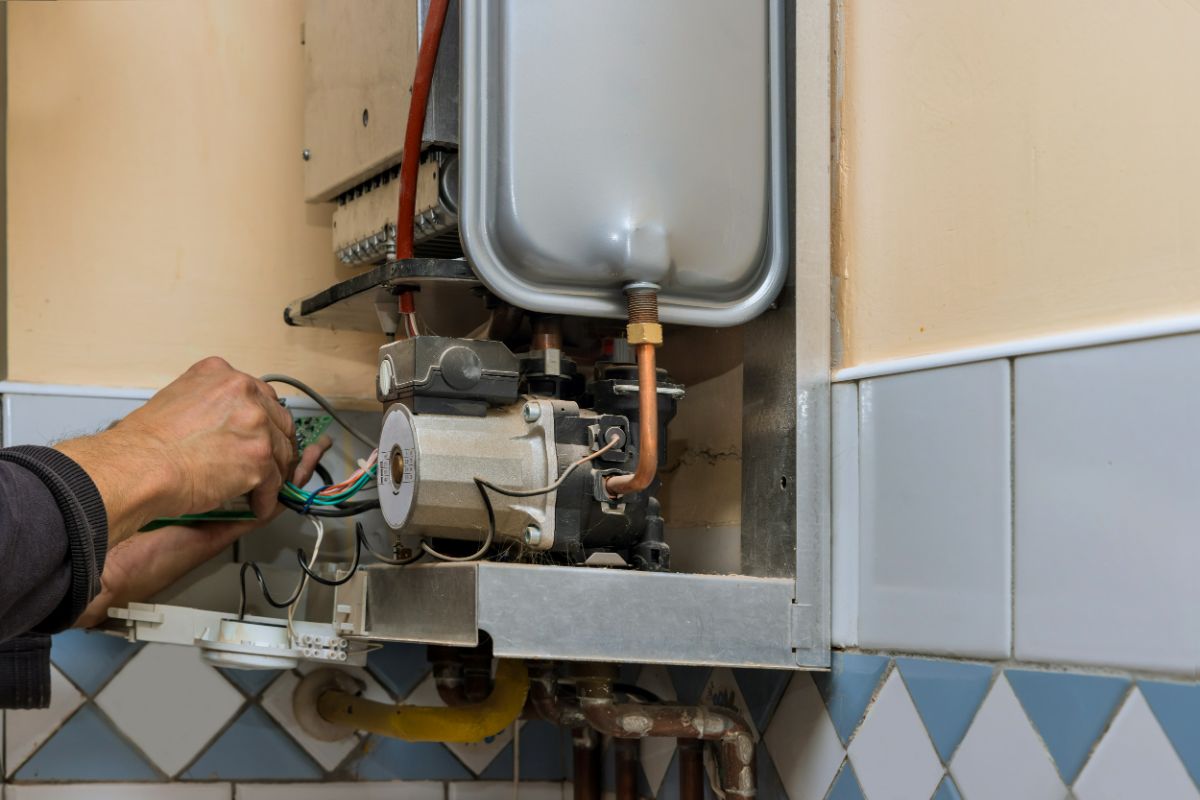Expert Tips on Maintaining Your Home's Hot Water SystemImportant Advice on Maintaining Your Home's Hot Water System
Expert Tips on Maintaining Your Home's Hot Water SystemImportant Advice on Maintaining Your Home's Hot Water System
Blog Article
What are your opinions concerning Tips For Maintaining Your Hot Water Heater?

Hot water is vital for day-to-day convenience, whether it's for a refreshing shower or washing meals. To guarantee your warm water system runs efficiently and lasts much longer, routine upkeep is vital. This write-up offers functional ideas and insights on exactly how to maintain your home's warm water system to stay clear of disruptions and costly repair services.
Introduction
Preserving your home's warm water system could seem difficult, yet with a few easy actions, you can guarantee it operates smoothly for many years ahead. This overview covers everything from comprehending your warm water system to do it yourself upkeep tips and understanding when to contact expert aid.
Importance of Maintaining Your Hot Water System
Routine upkeep not just extends the lifespan of your hot water system but also ensures it operates effectively. Disregarding upkeep can lead to decreased efficiency, higher energy costs, and even premature failure of the system.
Indications Your Hot Water System Requirements Upkeep
Recognizing when your warm water system requires focus can avoid significant concerns. Keep an eye out for indicators such as irregular water temperature level, unusual noises from the heater, or rusty water.
Comprehending Your Hot Water System
Before diving into maintenance tasks, it's useful to understand the basic components of your hot water system. Typically, this includes the hot water heater itself, pipes, anode rods, and temperature controls.
Monthly Upkeep Tasks
Normal month-to-month checks can aid capture small problems before they intensify.
Flushing the Water Heater
Purging your hot water heater gets rid of debris accumulation, improving efficiency and prolonging its life.
Monitoring and Changing Anode Rods
Anode poles avoid corrosion inside the tank. Examining and changing them when worn is essential.
Inspecting and Changing Temperature Settings
Adjusting the temperature setups makes sure ideal efficiency and safety and security.
DIY Tips for Maintenance
You can execute several upkeep jobs yourself to keep your warm water system in top condition.
Looking for Leakages
Routinely evaluate pipelines and connections for leakages, as these can cause water damage and greater expenses.
Testing Stress Alleviation Valves
Checking the pressure safety valve ensures it functions appropriately and stops extreme stress accumulation.
Insulating Pipes
Shielding hot water pipelines minimizes heat loss and can conserve power.
When to Call a Professional
While do it yourself maintenance is beneficial, some problems call for expert proficiency.
Facility Problems Calling For Expert Aid
Examples consist of major leakages, electrical troubles, or if your water heater is continually underperforming.
Routine Specialist Maintenance Conveniences
Expert upkeep can include complete evaluations, tune-ups, and making certain compliance with safety criteria.
Conclusion
Routine maintenance of your home's hot water system is crucial for effectiveness, longevity, and expense financial savings. By following these ideas and knowing when to seek specialist help, you can guarantee a dependable supply of hot water without unanticipated disruptions.
How to Maintain an Instant Hot Water Heater
Before tinkering with your hot water heater, make sure that it’s not powered on. You also have to turn off the main circuit breaker and shut off the main gas line to prevent accidents. Also turn off the water valves connected to your unit to prevent water from flowing into and out of the appliance. 2. When you’re done, you have to detach the purge valves’ caps. These look like the letter “T” and are situated on either side of the water valves. Doing so will release any pressure that has accumulated inside the valves while at the same time avoid hot water from shooting out and burning your skin. 3. When the purge valves’ caps are removed, you have to connect your hosing lines to the valves. Your unit should have come with three hoses but if it didn’t, you can purchase these things from any hardware or home repair shops. You can also get them from retail stores that sell water heating systems. Read the user’s manual and follow it to complete this task properly. When the hosing lines are connected, open the purge port’s valves. 4. You should never use harsh chemical cleaners or solutions when cleaning your unit. Make use of white vinegar instead. It should be undiluted and you’ll probably use about 2 gallons. 5. Now flush your water heater. This task should probably take about 40 minutes. We can’t give you specific directions for this because the procedure is carried out depending on the type, model and brand of your heater. With that being said, refer to the user’s manual. 6. When you’re done draining the unit, you have to turn off the purge port valves again. Remove the hosing lines that you earlier installed on each of the water valves. Put the valve caps (purge port) back in their respective places and be very careful so as not to damage the rubber discs that are found inside these caps. 7. Now that everything’s back in place, check your user’s manual again to find out how to reactivate your water heating system. 8. Once it is working, turn one of your hot water faucets on just to let air pass through the heater’s water supply pipes. Leave the tap on until water flows smoothly out of it. https://www.orrplumbing.com/blog/2014/september/how-to-maintain-an-instant-hot-water-heater/

As an enthusiastic person who reads about Water Heater Maintenance Tips You Can't Afford to Forget, I think sharing that portion was smart. Don't hesitate to take the time to promote this article if you enjoyed it. I am grateful for your time. Return soon.
Show Details Report this page